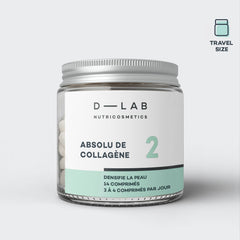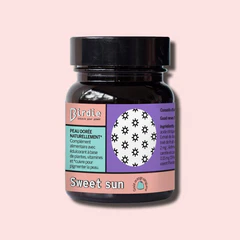
Winter brings its share of pleasures, like snow-covered landscapes and evenings by the fireside. But it also brings a major challenge for our skin. The biting cold, icy wind and indoor heating can all have a drying and irritating effect, leaving our skin in need of special care. In this article, we'll discuss the differences between winter and summer skin care, the specific problems associated with cold weather, and provide practical, tailored advice for keeping skin healthy and radiant throughout the winter season.
I. Understanding your skin's needs in winter
Cold is not the only enemy of our skin during this season; wind, reduced humidity, and sudden temperature changes between heated indoors and freezing outdoors also play an important role in the deterioration of the skin barrier. This fragility makes the skin more susceptible to redness, dryness and even more serious conditions such as eczema or dermatitis.
A. Differences between winter and summer skin care
Skin care varies considerably between summer and winter, due to climatic and environmental changes. In summer, skin is subjected to high levels of sun exposure, heat and humidity, which can increase sebum production, leading to oilier skin and the increased risk of clogged pores. Summer skincare therefore focuses on sun protection, with the use of broad-spectrum sun creams, and on controlling excess sebum, with a preference for gentle cleansers and light moisturizers. Winter, on the other hand, presents a different set of challenges. Cold, wind and indoor heating can dry out skin, making it more sensitive, dry and prone to irritation. In response, winter skincare routines focus on intense hydration and protection. Richer creams and nourishing moisturizers are essential to maintain the skin's moisture barrier. In addition, lip balms and hand creams are becoming essential to counter the drying effects of the cold. While the application of sunscreen remains important in winter, especially when exposed to reflective snow, the focus shifts from UV protection to combating dryness and wind. These differences underline the importance of adjusting one's skincare routine according to the season to preserve health and radiance.

B. The main cold-related skin problems
Cold winter weather exposes the skin to a series of specific problems, resulting from lower temperatures and harsh environmental conditions. The first and most common of these problems is skin dryness. The cold, combined with low humidity and indoor heating, can deplete the skin's natural moisture, leaving it dry, tight and sometimes flaky. This dryness can also lead to itching and flaking, making the skin uncomfortable and irritated.
Another common problem is chapped skin, particularly on the lips and hands, which are most exposed to the elements. These cracks in the skin can be painful and difficult to heal if constantly exposed to the cold. What's more, winter conditions can exacerbate pre-existing skin problems such as eczema and rosacea, where the cold can cause flare-ups and increase redness and irritation.
The skin can also react to the sudden change in temperature between a cold exterior and a heated interior, which can disrupt its protective barrier and increase sensitivity. This increased sensitivity can manifest itself as excessive reactivity to skin care products or environmental irritants.
Finally, chilblains, although less common, represent a risk in extremely cold temperatures, causing redness, itching and pain in the affected areas.
These problems underline the importance of an adapted, preventive skin care routine to combat the damaging effects of the cold on skin health.
II. winter skin care solutions :

A. Care
To protect your skin from the cold in winter, opt for an appropriate skincare routine. Use rich, nourishing moisturizers that strengthen the skin's barrier against cold and wind. Don't neglect sunscreen, even on overcast days, as UV rays can be just as harmful. Opt for gentle cleansers that don't strip the skin of its natural oils. Also remember to protect your lips with a moisturizing balm and your hands with a specific cream, as these areas are particularly vulnerable. By following these tips, you'll help your skin stay healthy and resilient all winter long.
B. D-LAB beauty supplements :
Taking beauty supplements can be beneficial for looking after your skin in the cold.
HYALURONIC ABSOLUTE
✔ Improves elasticity
✔ Reduces fine lines and wrinkles
✔ Rehydrates the skin
✔ Maintains skin hydration
ABSOLUTE OMEGA-3
✔ Reduces inflammation
✔ Smoothes and softens skin
✔ Maintains hydration and elasticity
✔ Protects against external aggression
A NEW LOOK FOR PRO-COLLAGEN
✔ Reduces fine lines and wrinkles
✔ Moisturizes and protects the skin
✔Formula 100% natural origin
✔ Clinically proven efficacy
For those with a sweet tooth, also discover :
C. Dietary and lifestyle advice
We also recommend a diet rich in antioxidants and essential fatty acids. Include foods such as berries, nuts, oily fish and green vegetables, which nourish the skin from the inside out. Hydration is also crucial; drink enough water and limit consumption of diuretic drinks like coffee. Make sure you get a good night's sleep, as lack of rest can affect the health of your skin. Finally, minimize stress, which can exacerbate skin problems, by practicing relaxing activities such as yoga or meditation.








